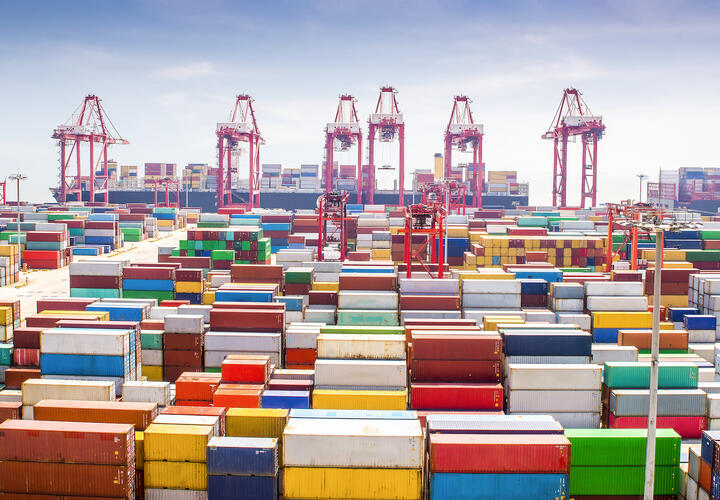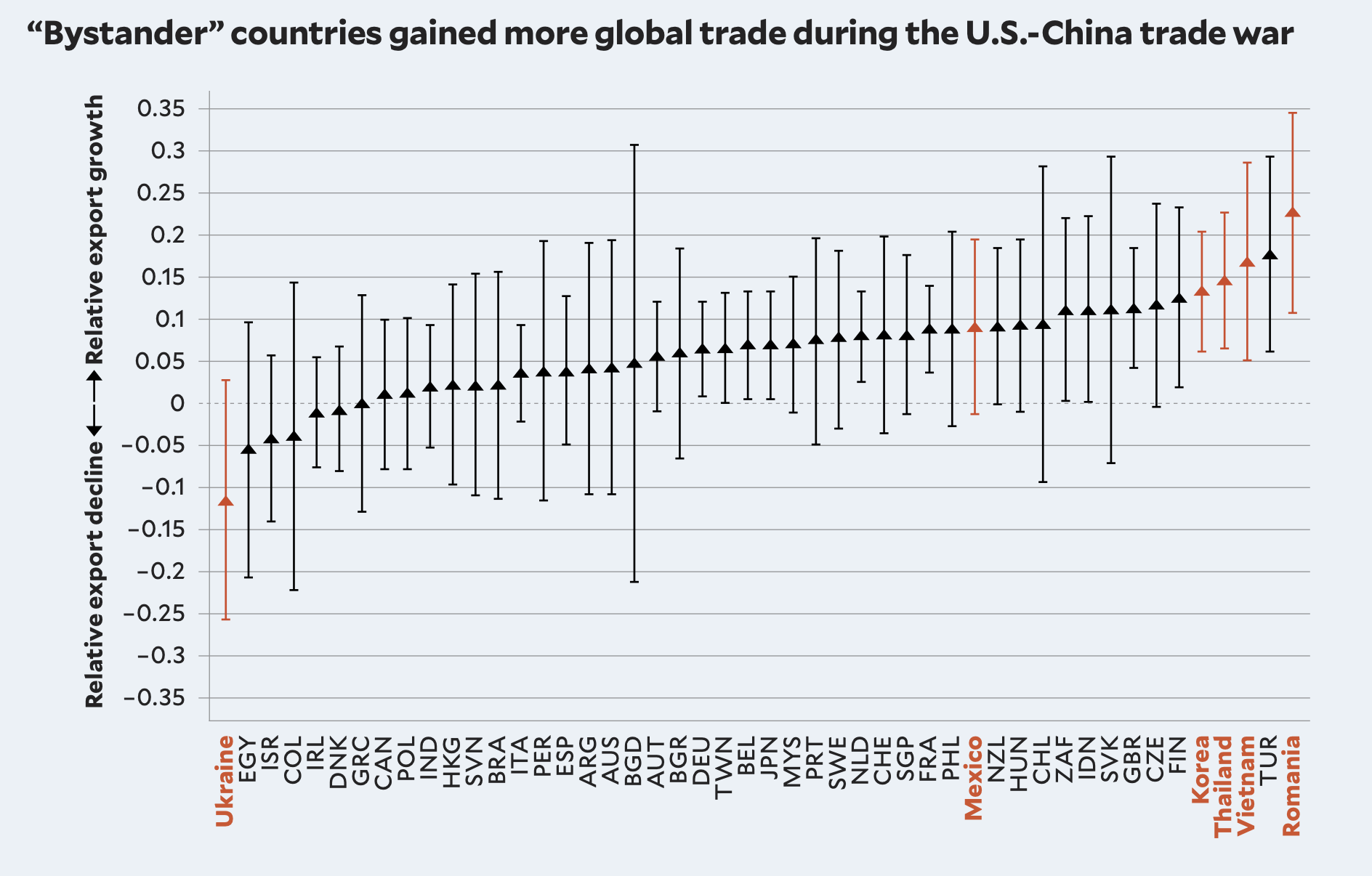Research by EGC affiliates offers perspectives on the effects of new tariffs
What will steep new U.S. tariffs mean for the global economy, manufacturing in “bystander” countries, and poverty reduction in lower-income countries? Pinelopi (Penny) Koujianou Goldberg, Amit Khandelwal, and other EGC researchers offer valuable insights.

Are tariffs a negotiating tool, or a source of economic disruption?
Are Tariffs Worth It?
Penny Goldberg, Project Syndicate, Nov 20 2024: The new administration faces a wary, inflation-sensitive public and a Chinese regime that is well prepared to pursue large-scale retaliation. Goldberg, a former World Bank Chief Economist, argues that if leaders are serious about introducing new tariffs, they will need to choose among conflicting policy goals.
What will the trade war mean for consumer prices in the US?
Amit Khandelwal quoted in New York Times: "Trump’s Trade Move Could Increase Costs for Many Online Goods"
Khandelwal was quoted in a New York Times article exploring how new tariff measures could impact consumer costs for common purchases.
Amit Khandelwal featured on NPR: "Tariffs, grocery prices and other listener questions"
Khandelwal joined the Planet Money podcast to share insights from his research on "bystander countries" and how the "China + 1" manufacturing strategy might come into play.
Amit Khandelwal analyzes the short- and long-term effects of the US-China trade war
In a 2022 paper, Khandelwal and coauthor Pablo Fajgelbaum reviewed what economists had learned about the US-China trade war and its effects. “One thing that was surprising in this trade war is that the cost was fully passed on to the consumers,” Khandelwal said. In previous tariff incidences, only about half of tariff changes were passed through to consumers. In the US-China trade war, all of it was.
Penny Goldberg, Amit Khandelwal, and coauthors: “The Return to Protectionism”
When the United States raised import tariffs in 2018, import and retaliatory tariffs caused large declines in imports and exports. The resulting losses to U.S. consumers and firms that buy imports was $51 billion, or 0.27% of GDP. The authors accounted for tariff revenue and gains to domestic producers and found the aggregate real income loss was $7.2 billion, or 0.04% of GDP.
Who benefits from border tariff exemptions?
Amit Khandelwal's research featured in The Economist: "How Chinese goods dodge American tariffs"
In a new working paper, Khandelwal and coauthor Pablo Fajgelbaum of the University of California, Los Angeles analyzed U.S. border tariff exemptions and found the policy benefited both Chinese producers and low-income American consumers.
What “bystander” countries stand to benefit from trade wars?
EGC Research Summary: In the US-China trade war, how did some “bystander” countries come out ahead?
In a recent paper, Pinelopi Koujianou Goldberg, Amit Khandelwal, and coauthors explore how some lower-income countries benefited from the US-China trade war. They find that these countries increased their exports of tariffed goods not only to the US and China — filling gaps left by these two warring trade partners — but also to the rest of the world.

What does resurgent protectionism mean for lower-income countries?
The Trade Shifts Redefining Economic Development
Penny Goldberg and Michele Ruta, Project Syndicate, Jan 22 2025: As geopolitical tensions, technological changes, and a resurgent protectionism transform global trade, developing countries are finding it harder to replicate the export-driven growth miracles of the past. Fostering sustainable development in this new environment will require pragmatic, forward-looking solutions.
Development Dialogue: How can emerging economies break free from the sidelines of global trade?
In an EGC-VoxDev podcast, Amit Khandelwal, Isabela Manelici (London School of Economics), and Arvind Subramanian (Peterson Institute for International Economics) discuss how lower-income countries have engaged with global trade. How have their approaches to trade differed based on their underlying institutional and economic structure? What has been the impact on their economies and how might the change in US leadership shape the future of global trade?
The Changing Nature of Globalization and its Implications for Development
Penny Goldberg delivered the 2024 CES Munich Lectures in Economics hosted by the Center of Economics, LMU Munich, focusing on what the current trade tensions imply for lower-income countries. Slides available here.
How can trade research speak to global development challenges?
In Conversation: Lauren Falcao Bergquist & Amit Khandelwal on trade & development
The two EGC affiliates discuss how development economics is borrowing from trade models – and vice versa – to better understand global policy challenges